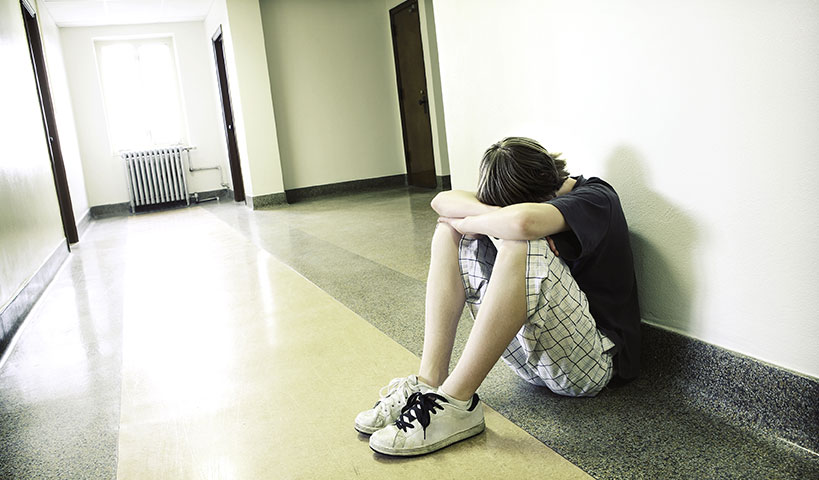Cyberbullying is a tough problem to deal with because it happens so anonymously and can be tough to spot in your own children if you aren’t looking for the signs. Watch for the following signs in your kids and talk to them if you are noticing changes in their behavior. Don’t assume they are “just being a teenager” or “are being moody.”
Did you know that 43% of kids have been victims of cyberbullying but only 58% of them tell their parents.
- They become withdrawn and seem to be reluctant to leave the house. They stop going to social events, like parties, school sports or the movies, that they use to enjoy. This is a classic sign of depression and withdrawal.
- They seem anxious or nervous when receiving texts, social alerts or emails often times ignoring them when before they would have jumped at the latest alert. This can be a sign they are avoiding something online that is bothering them.
- When they are using a computer or device they get agitated or angry and abruptly shut off the device or computer and walk away. Often times this is not the best time to talk to them as they are agitated but you should note it and try and discuss it.
- They have unexplained stomachaches or headaches. They don’t want to go to school often pretending to be sick in order to miss it. You may also see them fall behind in school or a drop in their grades. These are classic signs of depression that can come from being bullied.
- They become more secretive and demonstrate an unwillingness to share information with you online or they may create new accounts you don’t have access to. Trying to hide their activities may seem a bit like being a teenager in general but it often has to do with feelings of isolation and not wanting their parents involved in their problem because they believe they can handle it themselves.
- They avoid talking about their computer or mobile device. This is the source of their problems with cyberbullying so ignoring it is one way they choose to cope with the situation.
- They suddenly start deleting their social network profiles and/or accounts.
- A whole bunch of new texts, email addresses or phone numbers begin appearing on your kid’s phone, laptop or other device.
- You may notice changes in their health like unexplained weight loss or gain. They seem to have trouble sleeping at night.
All of the above are key indicators that there could be a problem with cyberbullying. It may be more persistent than that. There may be physical bullying in addition to the continued online harassment. What you need to do is talk to them. Let them know they are not alone and that you are there to help them however they need it. For ideas on how to talk to your kids about being cyberbullied, read our article on Helping Your Child Cope with a Cyberbully.


